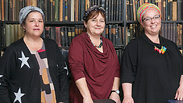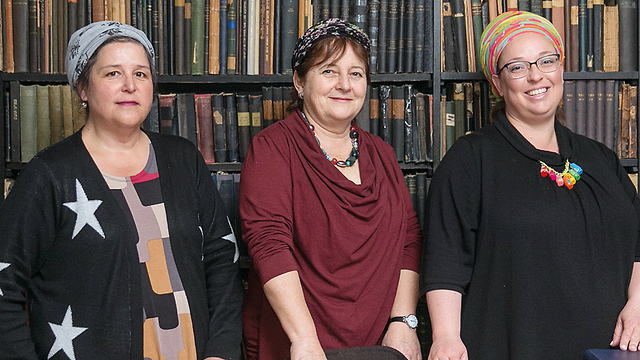
Women unable to take exam
Photo: Ohad Zwigenberg
A group of religious women are threatening to take Israel’s Chief Rabbinate to the High Court of Justice (HCJ) unless they receive an explanation as to why their applications for an examination on the laws of Niddah—which prohibits sexual intercourse or physical contact between a married couple during the menstrual cycle—have been rejected.
The women, who have been learning and teaching Torah for many years, attempted to register for the exam but their application was rejected out of hand and no reason was offered.
When one of the women tried to clarify why she was unable to participate in the test, she was told by a representative that “according to the guidelines, there is no option for women to take the exam.”
The exam is one of a series of tests that are taken by thousands of candidates interested in receiving rabbinical ordination.
Beyond the recognition for Halachic knowledge that the women would be afforded if they pass the exams, the tests are equivalent to an academic degree and enable people to apply for tenders in the civil service and therefore carry significant economic value.
As a result of a petition submitted by the Emunah social action organization to the HCJ in 2014, the Rabbinate is required today to allow women to take exams on Jewish dietary laws (kashrut), an exam that is a mandatory precondition for securing work as a kitchen supervisor in kosher food establishments.
However, women are still are unable to take exams on the halachic laws of Shabbat, holy matrimony, prayer and other topics.
The issue of Niddah, however, has triggered particular anger among the women since these laws relate solely to women and female religious purity. Nevertheless, only men are currently able to take exams on the matter.
Angered by what they considered to be an absurd restriction, the women contacted the manager of the Chief Rabbinate’s examinations department, Rabbi Yehudah Glickman through ITIM organization, an Israeli not-for-profit organization founded in 2002 by Rabbi Seth Farber to improve the way the State of Israel regulates matters of Jewish identity and life.
In a letter, the women demanded that Glickman justify the decision to reject their application for the test, highlighting that they have been teaching in institutions for Torah studies across the country for years.
“Our world is the Torah and we serve a large community of women by answering halachic questions using our knowledge,” explained Sara Segel-Katz.
“Without the option of being examined officially and to receive recognition, it’s as if our work doesn't exist. The exam assesses the knowledge we have and the most important thing is that we can be tested as people,” she added.
“As long as that is not possible, it is an absurd situation that creates and invalid hierarchy between men and women. Since the laws of Niddah are traditions for women, women are needed who have the ability to explain about themselves on the matter.”
According to lawyers Elad Kaplan and Sara Weinberg who are representing the women, the matter amounts to little more than discrimination.
“The Rabbinate is responsible for the exams on Halacha on behalf of the State of Israel. It cannot be that the possibility of taking the exam is blocked for women,” they said. “The women who are seeking to take the test are Torah scholars and serve thousands of women on Halachic issues. The rejection of their requests harms the world of Torah.”
The Chief Rabbinate, however, insisted that the matter had nothing to do with discrimination, but more to do with the purpose for which the tests were originally created.
“The examinations department of the Chief Rabbinate conducts tests for the purpose of examining the qualifications of rabbis of dayans (rabbinic judge) in accordance with the criteria that were determined by the Chief Rabbinate Council,” an official sought to clarify.
The officials also added that the Chief Rabbinate is a body that “tests people for the positions of rabbis or judges, and its purpose is not to examine the halachic knowledge of every person who asks for it.”

















